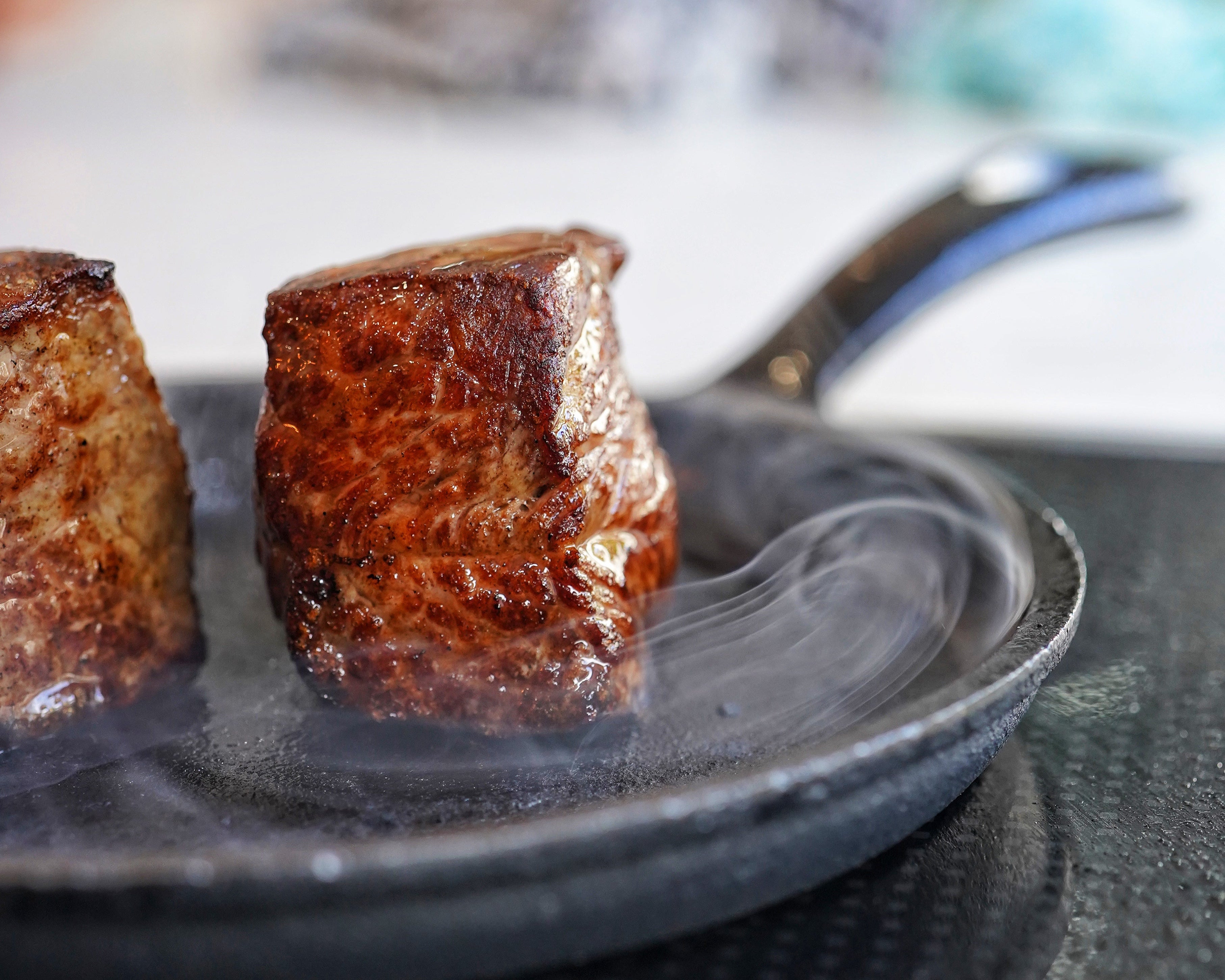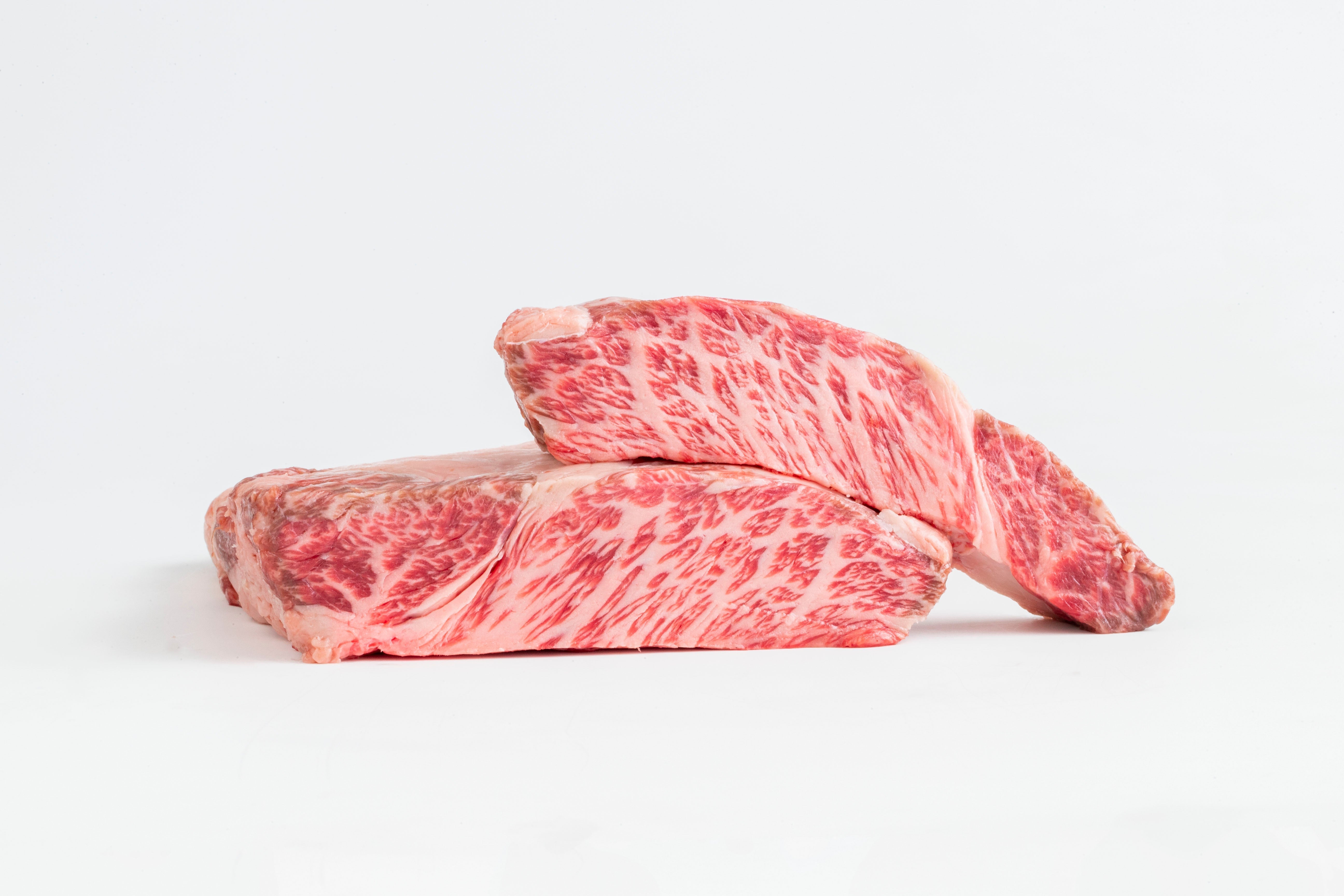Article: Health Benefits of Wagyu Beef

Health Benefits of Wagyu Beef
Wagyu beef is renowned not only for its exceptional flavour and tenderness but also for its potential health benefits. The unique marbling of Wagyu, which consists of intra-muscular fat, has been linked to increased longevity and a reduction in disease risk.
Unique Fat Composition
Scientific research has shown that the saturated fat in 100% Fullblood Wagyu beef has distinct characteristics compared to other beef breeds. The intra-muscular fat in Wagyu contains a higher proportion of monounsaturated fatty acids (MUFAs) relative to saturated fats, making it one of the healthiest beef options available.
Wagyu beef boasts a higher MUFA content per gram than most other foods, with approximately 30% more than conventional beef. MUFAs are known for their anti-carcinogenic and anti-inflammatory properties. They are also found in heart-healthy foods such as avocados and olive oil and are known to reduce blood cholesterol levels, lower the risk of heart disease, and decrease the prevalence of certain types of cancer.
Additionally, Wagyu genetics contribute to beef with elevated levels of Omega-3 and Omega-6 fatty acids, which are essential for cardiovascular and brain health.
Healthier Saturated Fat Profile
Dr. Tim Crowe, a dietitian and lecturer at Deakin University’s School of Exercise and Nutrition Science, has noted that even the saturated fat in Wagyu is different. He explains that 40% of the saturated fat in Wagyu beef consists of stearic acid, a type of fat that has minimal impact on raising cholesterol levels. Due to this composition, Wagyu beef can be considered a healthier meat choice.
There is growing belief among researchers that Wagyu beef has properties that may help reduce the risk of heart disease, diabetes, asthma, Alzheimer’s disease, and excessive body fat accumulation. Additionally, its beneficial fat composition may enhance immune function.
Expert Insights
Dr. Stephen B. Smith, a leading animal science professor at Texas A&M University, is a recognized expert in meat fat research. His studies confirm that Wagyu beef is juicier and more flavourful than other types of beef due to the lower melting point of its marbling fat. According to Dr. Smith, the monounsaturated-to-saturated fat ratio in Fullblood Japanese Black Wagyu cattle typically reaches 2:1 or higher, compared to a 1:1 ratio or less in commercial cattle.
He further highlights that Wagyu beef contains higher levels of oleic acid, which contributes to its health benefits. Higher monounsaturated-to-saturated fatty acid ratios have been linked to better heart health and improved overall nutritional value.
The Evolving Perspective on Animal Fats
Modern food science has reevaluated the role of animal fats in human nutrition. Once thought to be detrimental to health, recent findings indicate that specific types of animal fats, such as those found in Wagyu beef, can be beneficial. These fats play a role in promoting heart health, reducing inflammation, and supporting overall well-being.
Grain-Fed vs. Grass-Fed Wagyu
Dr. Smith has also conducted research comparing grain-fed and grass-fed Wagyu beef. While both feeding methods impact the final fat composition, marbling remains a key factor in determining Wagyu’s nutritional benefits. His studies suggest that regardless of diet, the unique fat profile of Wagyu beef makes it a superior choice for both flavour and health benefits.



